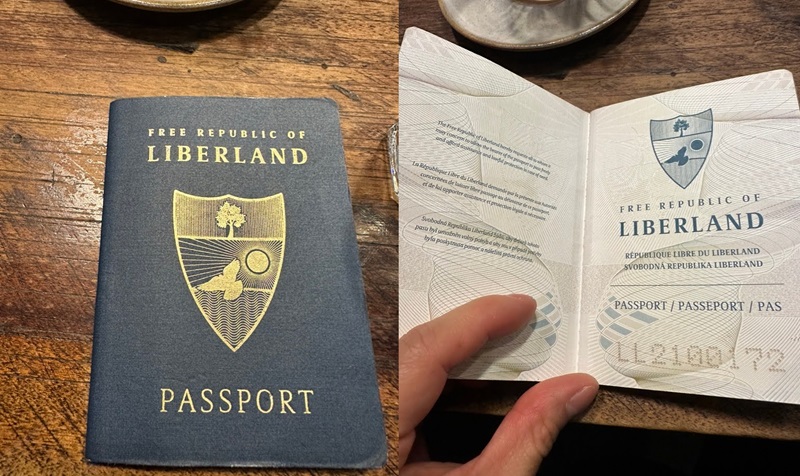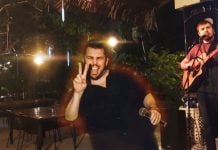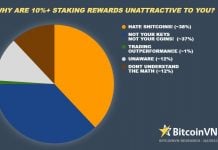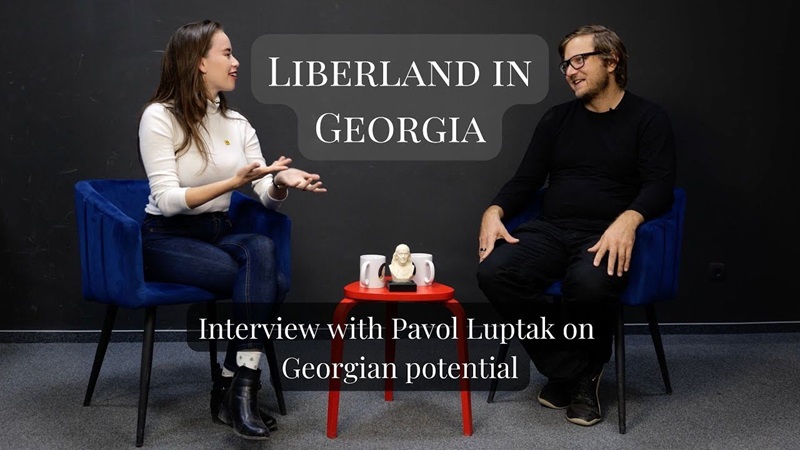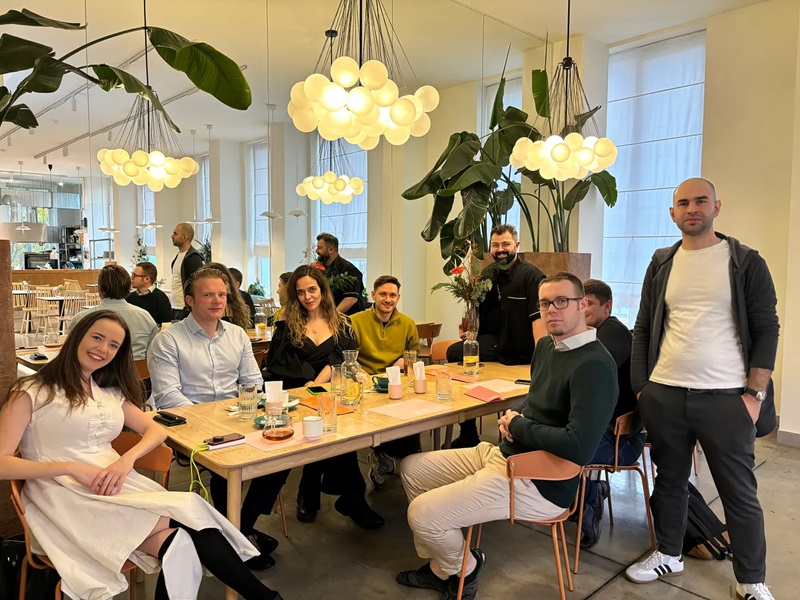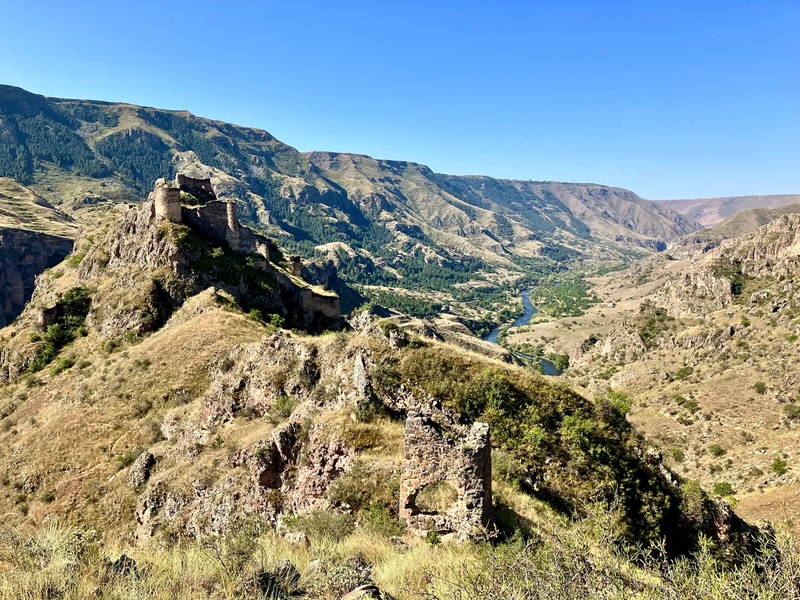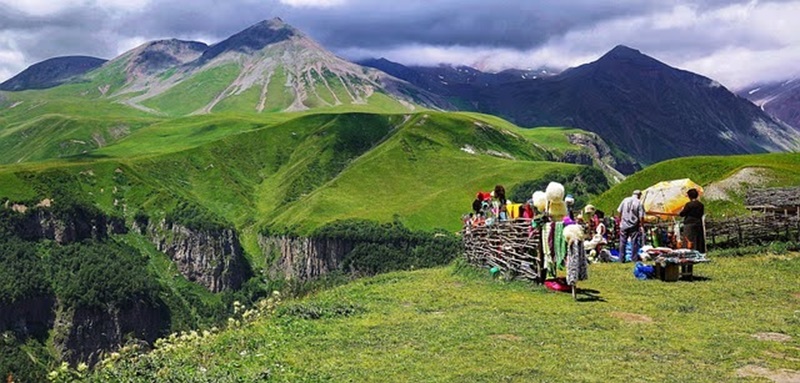Samuela Davidova is the Press Secretary of Liberland and libertarian advocate. She is the host of the Liberland In Georgia podcast and founder of The Freeist Academy.
—
How did you become interested in libertarian ideas and when was the tipping point where you became a libertarian?
I’m from the Czech Republic, and people there are tired of talking about politics. When I was young I also didn’t care about politics much.
There is this set mindset in Eastern Europe, and actually Europe in general, that there is nothing changeable in politics.
Then I came across this guy, Pavol Luptak. I would say he is one of the closest people who heavily influence me. He is a Slovakian crypto anarchist, hacker, has started his own security company and he helps people relocate in Paraguay and establish permanent residency. He is a libertarian for life. I’ve met a few people over these past years, academics, who are just sitting at the table saying, “The world is bad”. I’m not inspired by that.
I’m inspired by people who travel to the hundreds of countries around the world and show that, hey, this is the status quo here but if you travel around the corner and cross borders, it works differently.
Pavol was showing that you can go and live differently elsewhere. Just because you are used to a certain bureaucracy or pay a certain tax, it doesn’t mean that this is the norm. Through him I got into related books and ideas. And thanks to him, it’s how I got into Liberland.
Sadly, most libertarian minded people don’t really live libertarian ideals. There are not that many people that take it as a philosophy of life- as an optionality.
I am the one who chooses the conditions I will have in my life. So I can move to a country or place that could be better. Or what Liberland did and created these conditions.
Journeying to different parts of the world seems to be affiliated with current day libertarianism. How does the ability to travel fit into the libertarian ethos?
Libertarianism is not about being a digital nomad, but I’ll provide a bit more context.
I said this once at a conference- “Crypto currency related people want to have ownership of their money, and libertarians want to have ownership of their life”.
I think that many people by default are libertarian. Simple questions on bureaucracy such as, “Why do I have to pay this many officials to get this stamp to allow me something?”
This bureaucracy doesn’t create any value. To me, libertarianism is value oriented. Where this takes you follows on.
I want to create value. More bureaucracy and more stamps do not create value. All government laws are oriented around “security” and it puts itself above you, they will manage how you live your life. This is the reason why you should pay them 50% taxes, influence how much energy you can consume, etc.
Over 100 years ago, they didn’t have passports or care much about which country you were from. Everyday people minded about how to make businesses and trade and not ask for visa approval.
This fascinates me a lot, how quickly we forget and how quickly we adapt to a new status quo and consider it as the norm. But norms didn’t used to be, and this norm [government bureaucracy] is a type of massive manipulation to see how we would adapt to it under certain conditions.
Governments are adding more regulations, usually under the motif of “We will keep you safe and secure”. Why is that? It provokes fear, which makes people willing to agree to it under fearful conditions. People do not tend to think- “Is this not secure for me? I didn’t even know.” And the government will be like, “Oh yeah, you need this and we have to save you”.
They’re basic ways on how to manipulate you- guilt and shame. Shame on you for not paying your fair share of taxes. What is fair? Is it fair to pay someone who doesn’t provide any value?
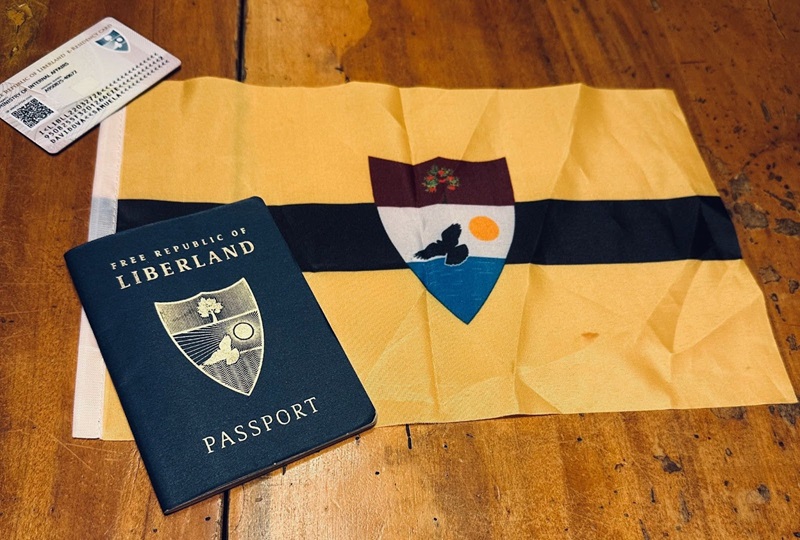
It sounds like growing up and seeing European bureaucracy and being introduced to Pavol is what catalyzed your I want to break free moment into living libertarian ideals.
I really don’t like bureaucracy! I’m a little bit better as I make some concessions now. Living in Georgia, which is the least bureaucratic country in the world, I love to be here.
I was really annoyed by the Czech bureaucracy and its hopelessness. Czechia is a special mix of post German mindset- Hyper control, judgmental, and so on, while at the same time you have a post soviet mentality- nobody really works and nobody really knows. It’s not the responsibility of anyone.
If you go to one governmental office and need to get something done, they will send you from one governmental office to another, and nobody knows.
They act as if, “Oh, what are you doing here? How do you dare to come here and annoy me with your request?”
“Who are you to me?”
“You should go somewhere else. Where? I don’t know, it’s your problem”
Of course, there are some exceptions with bright people who try to help you. But in my experience and those around me, the mentality prospective makes sense historically. No one really cares and at the same time, they control it. It’s a conflict and it doesn’t make sense.
I would say I gained this more libertarian perspective when I moved to Georgia. At first I was undecided when I arrived. It was covid time and I was working remotely. Then I found out I wanted to become a local tax resident because I want to pay 1% tax.
I realized the quality of life here is a really good fit for me. When you move to another country, people like to judge and say, “oh, but the locals live differently”, of course they live differently! I can support local products.
Always see it conditionally from your subjective perspective. You’re the expat. I’m a European girl who moved here who speaks English, Russian, Czech, French- whatever it doesn’t matter- but I speak languages that they understand. It’s easy for me to communicate. And all of these certain conditions make me perceived in this society in a certain way and it’s beneficial to me.
So I would say, if you are European and move to Georgia, you will have good conditions. It may not work the same for other nations and this is how it is. It’s a human question, not a law question. It’s all about the conditions suitable for you. If you feel that a country is a good fit for you, go for it. But it will be different for me and different for you.
Georgia seems to have an environment that libertarians would find attractive. From our previous conversations, it sounds like there are quite a few libertarian communities and meet-ups.
There is historic context here. There used to be a libertarian president and the government was different.
I know of 11 communities and the local students for libertarian representation is second in the world. Which is big considering Georgia has a population of 3.5 million people.
I was speaking at the Ayn Rand Center, The New Economic School, Students For Liberty, the local libertarian party, of which there are 2 libertarian parties. I don’t know of any libertarian parties in Central Europe.
There are a lot of communities but I would say there are differences within the generations. Young people want freedom, older generations want less taxes.
So being that Georgia has low taxes, what does the economy of the country look like?
The Georgian average salary is $350.00 and I would say that there are not enough places to work for people, but the trade off is that it’s very easy to make a business here. There are a lot of people trading- selling things at the markets and providing services, beauty shops and spas for women is one example.
My podcast, Liberland in Georgia, is actually focused on the tech start-up scene here. I talk to interesting guests from the country who bring the country into an international business perspective. There are not many.
I would say that one area of focus is taxation and the other is legislation. The legislation is the mindset and I hope that young people use it for their benefit. The challenge is that young people here don’t have the experience of what to do or mentors and role models to guide them. People here aren’t doing it.
But there are so many green fields here. If you come from abroad and if you are capable, you can make money. There are a lot of English and Russian speaking foreigners, Saudi Arabian and Chinese people are coming too. They are sort of invisible but it’s a place that people overlook. 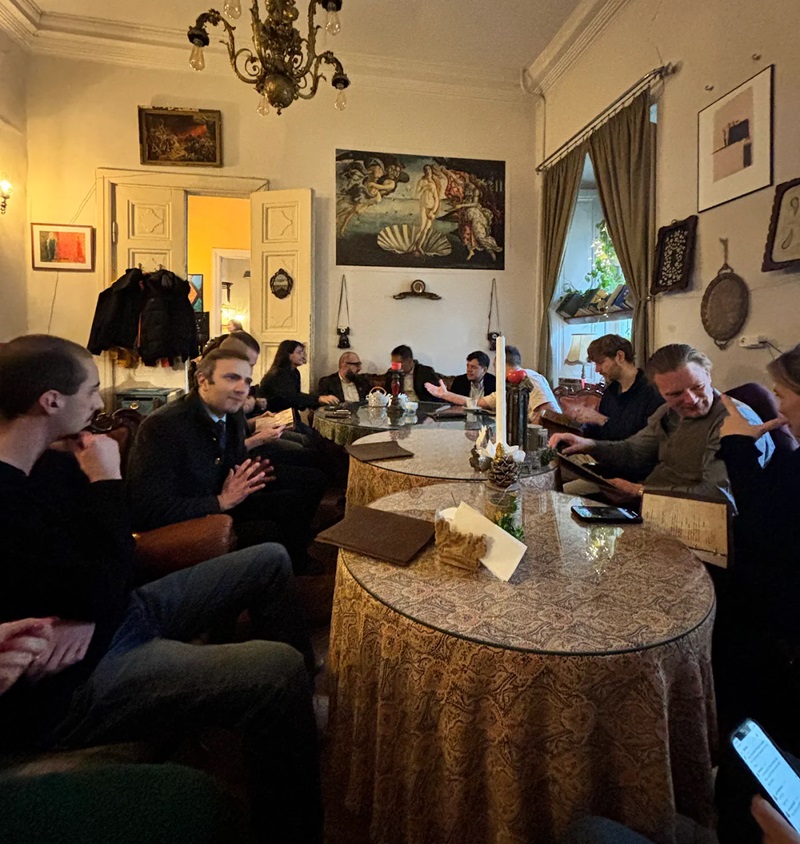
Georgia is on the silk road, it’s an emerging market. From a business perspective there are a lot of opportunities but the people here aren’t really into it. Georgians are wonderful people but generally speaking they aren’t very willing to take on much responsibility.
Is it that the people aren’t exposed to these ideas or that it’s just been so long that the people there don’t have that?
Maybe. 1/5 of the people live in the capital, and the rest often have their own farm and they mind their lives.
In reality, I would say they are the biggest libertarians and anarchists because these people think, oh I need to buy a cow, do I need government permission to do this? I bartered or traded this cow for a sheep, do I need to pay taxes on it? No, they don’t think this way. They live in the community in a more trust based mindset and this is the biggest strength against any oppressive power.
High trust societies calumniate strong values and strong relationships. Once you have that high trust, it’s easy to move and get things going.
The more people trust each other and the more they rely on the community increases contact on the street. In Georgia, for example, I’ll sneeze and someone 15 meters away will tell me “bless you!”.
It reminds me of covid and social distancing here. We got used to distancing ourselves from each other. “Don’t get too close to me, you might be sick”. And from a mentality perspective, how do we perceive this when someone might be sick? When you perceive someone that is dangerous or doesn’t have anything in common, you don’t trust them. It’s not possible to trust them because you are scared.
One day, I was standing in the street waiting for a taxi and a lady came up to me and asked me about the metro, and I was thinking in my head, Google maps? I said I didn’t know and I thought, people don’t use google maps here?
And you know what? They don’t. The city is as big as Prague, but there is so much contact within society and contact on the streets that asking for anything and small talk with people is normal.
The more people trust each other, the more they question why they should trust the government.
When you cannot rely on your neighbor, because you don’t know who your neighbor is and you are scared of them, then you need to rely on someone or belong somewhere. When you don’t have close relationships and communities, that is when people become willing to pay 50% of their income to the government. That government will tell you when you can retire and how much you will get back so you can survive. And people don’t mind doing that, why? Because they don’t have this feeling of trust in the community.
A year ago, I was in Phuket for a Liberland meet-up, and there was this guy who was there for 20 years and this exact topic came up. He said that in Thailand, social security is your family. Of course we can discuss how it may be manipulative, how we don’t choose our family, it can be unfair, harsh, etc. This is 100 percent but you don’t choose your family in Europe either, but there you can’t even rely on them. Of course this is conditional, but this is human relationships.
In the western world, you pay more and more to the government. And why do you do it? Because you feel like you can’t rely on someone else, because you are scared to actually rely on someone. These people [the gov] promised me that there will be something for me in the future, so I will trust them instead.
How are the family dynamics in Georgia?
I have a personal story about this! I lived with my friend’s family in a village for 3 weeks. I’ve known this friend for about a year but the family took me in as their “fourth daughter”. I was looking for a flat and trying to figure some things out. When I made my decisions and told them I would travel Asia but not return to their home, they said, “You’re leaving already?!”.
They told me to come back whenever I wanted and I have visited that family several times without my friend!
And so, to me, I was staying in a place, for free, unconditionally. It’s not something for nothing. These people want to be around you because of how they feel around you. It’s not that you just take, you give your energy, you give your presence, you give your smile and warmth. Obviously I help out when and where I can, but this was the first time I felt unconditional love.
It’s not about the acceptance or that they invited me, but the way they treated me and were sincere in asking when I was returning back. The importance was the experience of this. That I can stay. That it’s OK and that it’s safe. I can rely on it. They won’t say, “oh it’s okay, we changed our mind”. No.
What I’m trying to get at is that this creates a strong foundation of security in you because you can rely on someone. That you are not on your own. It doesn’t mean that you feel dependent on people, but that when you feel secure then it’s much easier for you to move on in life in other areas and to grow.
What is living a libertarian lifestyle? What does it look like?
There are 2 perspectives.
Let’s say you want to live a normal modern way of life. It’s the optionality which requires introspection. If I want to move to some country, it will be subjective and conditional based on who I am.
You can’t research and choose which is the best country to live in. You have to take a plane, explore and introspect. How does it feel? Is this some place I want to be? Does the food work for me? Does the weather work for me?
The idea of optionality, I call this concept The Freeist. I need to be responsible for my life, and it’s I who creates the conditions. From a self development prospective, where do you want to take this? What do you want in life? Libertarians want to have ownership of their life, crypto people want to have ownership of their money, both are connected. Crypto people tend to be more anarchists while libertarians rather want minimum government, more minarchy- Liberland follows this concept of minarchy. Minimum government focused on security, justice and diplomacy. That’s it.
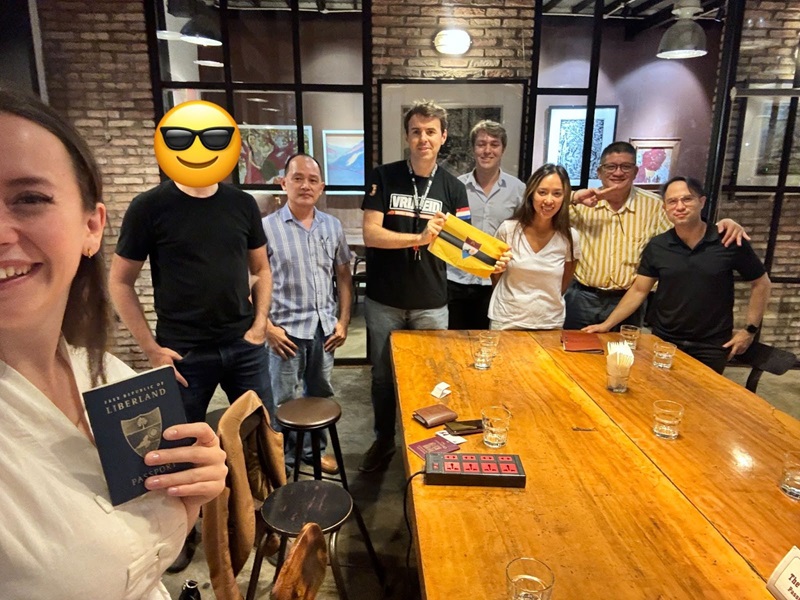
The more you go to yourself and the further you introspect and learn about your psychology, the more you tend to realize you don’t want to rely on artificial structures like government, it’s not natural. It’s a new thought I’m putting together, OK!
Most people with thoughts of wanting to provide value to the world and get value in return, they go to lower tax countries where they won’t be oppressed and where they can self express freely. Self expression in the way of providing value. Making a business. That’s it.
You might just search for the most economically free countries in the world and go from there and see how it works for you. This is one perspective. No one can do this for you, this is maturing. So enjoy!
There is a point where you start to think not in terms of which government is better but switch to a mindset of not using the government at all.
When I mentioned the village I stayed in, it has some roads, small but it was something people built to get around. It’s a village where people collaborate with each other. They have to rely on every neighbor. One neighbor has a cow, another one has grain. They collaborate, they wouldn’t survive without each other. This collective doesn’t think, “What do I need the government to do to make my cow or bread better?” or “I need to report how much bread I sold today.” In their mindset, they don’t even think about it.
So why do I bring this up? Again, going back to my upbringing in central Europe- as you can see I am traumatized- I was scared to start a business. The first thing you think about when starting a business is, what is needed to be compliant? Do I have to register, where? How much does an accountant cost?
This leads to other thoughts such as if I found a company in Georgia taxes are this, in Estonia they can be this, should I start an LLC in the US? Where do I open the bank account and so on. What!? No! The pure idea of making a business- I’m not talking about $100,000 a month, no. Just even $2,000 a month, this is amazing. It means you provided value to someone else.
Oftentimes, people have a child-like creative perspective on creating a business. I had someone who came up to me and said they wanted to do a start-up on an AI that helps women who are traveling solo. I said, I fit that description and I wouldn’t use it. It’s not helping me really. Too much effort, you’re not really providing value and nobody will pay for it. It was obvious that she didn’t have real experience with it and traveling in the real world. She wouldn’t use it herself, but she has this idea. It’s lovely but reality check that nobody will pay for it or she will put too much effort to get $10.00.
It can be as simple as selling water or special cheese bread on the street like in Georgia. Maybe not $50,000. We see things in social media and think it has to be big. No, just make a living, it’s fine. Not enough to just survive but if you can make a few thousand dollars it means you are providing value.
It’s more about living. Hey, life is more than just about work. The take-away is, how can I benefit others? Oftentimes it’s not what you think is better for the world, because in this way you put yourself exactly above others. As does the government. But actually asking people, is there something I can help you with? If you can provide it, go and provide it.
This is how you can make money today. This is how you are the most libertarian- if you start a company, a business, start providing value to the world and make the market pie bigger, this is how you are actually libertarian more than someone who is being paid by academic subsidy and giving speeches about how you should be libertarian.
The libertarianism for life is just to be human.
For people that are new, what are some Libertarian resources you recommend?
Personally, I love and would recommend everyone, Economics In One Lesson. It’s a 2 page story that the other chapters revolve around through life. It gives a very good understanding and a sense of a bigger picture that is very easy to read.
The other thing I really like is called Open Borders, it’s a comic book that can be read in a day. It’s thought experiments based on immigration. Imagine if all the borders were open and anyone could come anywhere. There are some really nice, anti-racist perspectives. I don’t like this judgment based on passports but I was still having certain questions in mind, and this book was insightful to me.
Both books might not be by default the way libertarians think in reality, but this understanding will give you a human touch in understanding very simple principles of the world. Very insightful for the everyday and it’s something you can do.
